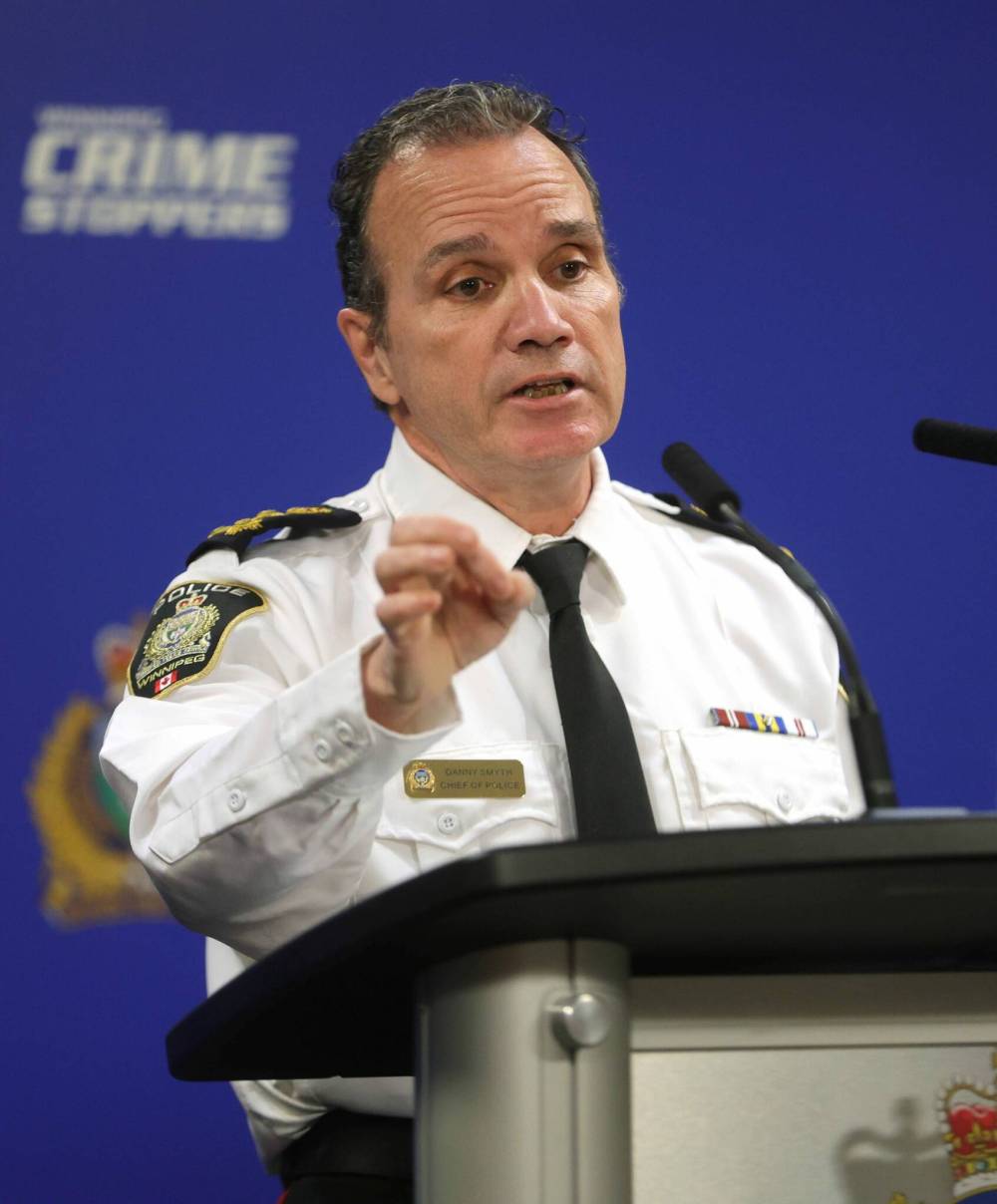It was about race, class and gender; feasibility had nothing to do with it
Advertisement
Read this article for free:
or
Already have an account? Log in here »
To continue reading, please subscribe:
Monthly Digital Subscription
$0 for the first 4 weeks*
- Enjoy unlimited reading on winnipegfreepress.com
- Read the E-Edition, our digital replica newspaper
- Access News Break, our award-winning app
- Play interactive puzzles
*No charge for 4 weeks then price increases to the regular rate of $19.00 plus GST every four weeks. Offer available to new and qualified returning subscribers only. Cancel any time.
Monthly Digital Subscription
$4.75/week*
- Enjoy unlimited reading on winnipegfreepress.com
- Read the E-Edition, our digital replica newspaper
- Access News Break, our award-winning app
- Play interactive puzzles
*Billed as $19 plus GST every four weeks. Cancel any time.
To continue reading, please subscribe:
Add Free Press access to your Brandon Sun subscription for only an additional
$1 for the first 4 weeks*
*Your next subscription payment will increase by $1.00 and you will be charged $16.99 plus GST for four weeks. After four weeks, your payment will increase to $23.99 plus GST every four weeks.
Read unlimited articles for free today:
or
Already have an account? Log in here »
Hey there, time traveller!
This article was published 28/02/2025 (278 days ago), so information in it may no longer be current.
On Wednesday, Manitoba Premier Wab Kinew reported that experts searching for Marcedes Myran and Morgan Harris at the Prairie Green Landfill had identified potential human remains while looking well below the surface.
Since last December, searchers have been excavating the area where Winnipeg police believe the remains of the two women — victims of convicted serial killer Jeremy Skibicki — were buried in 2022. Last March, the province of Manitoba and the federal government committed $40 million ($20 million each) to search the site.
Scientists won’t be able to ascertain for weeks whether the remains are Myran, Harris or someone else. DNA belonging to other, unidentified women were found in Skibicki’s apartment and it’s possible the discovery could be someone else — one of many other cases of murdered and missing Indigenous women, girls and two-spirit peoples in this province.

MIKE DEAL / FREE PRESS FILES
The sun rises over Prairie Green Landfill earlier this week, where it was announced possible human remains had been found.
“We found what we believe is somebody’s loved one,” Kinew announced to media Wednesday afternoon, which is about as clear a statement as he could make.
And he delivered what is now an undeniable truth.
“I think we’ve always understood that searching a landfill was the right thing to do, but with the disclosure of potential human remains being found today, I think we can also say it was a realistic and a reasonable thing for us to do,” he said.
Those words are worth repeating: realistic and reasonable.
Note the word the premier didn’t use: feasible.
The feasibility of conducting a search has been debated by police, politicians and pundits in this province since June 2022, when investigators determined that it was likely the remains of Myran and Harris were at Prairie Green Landfill.
Former premier Heather Stefanson’s 2023 re-election campaign advanced the argument — loudly and prominently in advertisements across the province — that the search, with no guarantee of success, was not worth the health and safety risks to workers, and that the Progressive Conservatives would “stand firm” on that decision.
Former Winnipeg Police Service chief Danny Smyth took flak from the victims’ families and others in the Indigenous community after explaining the department’s decision not to look for the women’s remains.
“A successful search and recovery in this circumstance isn’t feasible,” he said at the time.
A half-million dollars of taxpayer money was spent by the federal government on a “feasibility study.”
What is crystal clear now is that the word should never, ever again be used when it comes to the dignity of human beings. It’s a word only those lacking empathy and a sense of humanity would use.
It’s not a word any leader interested in bringing people together would use.
It’s also a lie.
The “feasibility” argument was nothing more than a distraction that relied on racism and class and gender inequities.
Anyone who wants to argue the point should just look up how much Canadian taxpayers spent on the coast guard’s participation in the June 2023 search for the Titan submersible that went missing while taking a handful of very wealthy joyriders from the U.S., Britain, France and Pakistan to gawk at the Titanic wreckage. I’ll save you the trouble; it was more than $3 million.
A landfill search was always doable, affordable and within the means of the police and the Manitoba and federal governments, even after the federally mandated “feasibility” study said the price tag could rise as high as $184 million over what could take up to three years.
In other words: there’s always money for things that matter.

RUTH BONNEVILLE / FREE PRESS FILES
Former police chief Danny Smyth was one of many who said a search was not feasible.
Concerns about exposing searchers to toxic chemicals, asbestos and a “slide-slope failure” during the search were also overstated, as was the time required to find human remains, it would appear; it has been 12 1/2 weeks since the search began in December — 87 days, to be precise.
The real cost was in the needless debate over “feasibility.”
I could try to estimate the costs of dividing Manitobans along racial lines and an argument that some humans matter more than others.
Or, I could try to calculate the incredible toll Indigenous peoples and the families of Myran and Harris have experienced watching “leaders” talk about their relatives and loved ones in terms of dollars and cents.
But I’ll try to put it simply.
After announcing in June 2022 that the remains were likely in the Prairie Green Landfill, authorities informed the landfill which then cordoned off two areas where the remains might be. The rest of the landfill and other potential areas, meanwhile, continued operation. If those in decision-making positions cared, everyone in this province would have stopped dumping garbage in all potential crime scenes immediately.
But it wasn’t feasible, I suppose.
Imagine, for just a moment, that Manitoba’s premier and the police had invited all peoples of the province and, in particular, the families of the victims, to join together and commit to a search.
Imagine how Manitobans would have come together regardless of race, gender or class, for a common goal.
Imagine how much less that search would have cost.
Imagine how much would have been gained.
Imagine how far we would be.
niigaan.sinclair@freepress.mb.ca

Niigaan Sinclair is Anishinaabe and is a columnist at the Winnipeg Free Press.
Our newsroom depends on a growing audience of readers to power our journalism. If you are not a paid reader, please consider becoming a subscriber.
Our newsroom depends on its audience of readers to power our journalism. Thank you for your support.
History
Updated on Saturday, March 1, 2025 1:00 PM CST: Minor copy edit










